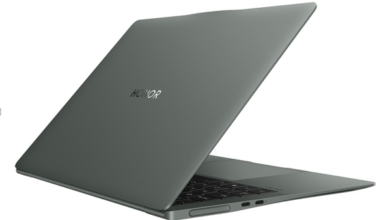Mobile Device Management For Modern Enterprises

Introduction To The Growing Need
The business environment today is dominated by digital tools and connected systems. Employees rely on smartphones, tablets, and laptops to communicate, share files, and complete tasks. While these devices bring convenience, they also create risks such as data loss, unauthorized access, and compliance challenges. Mobile device management has become a vital solution for organizations aiming to secure devices, manage usage, and ensure smooth business operations.
Defining Mobile Device Management In Simple Terms
Mobile device management is a system that helps companies control, monitor, and secure mobile devices used by employees. It gives IT teams the ability to configure security policies, manage apps, and restrict access when needed. By using this approach, businesses ensure that their data remains protected without limiting the flexibility employees need to work effectively.
Core Functions That Make It Essential
A strong mobile device management framework offers multiple features that improve both control and security. Some of the main functions include:
- Enrolling new devices quickly into the company system.
- Setting access restrictions based on company security policies.
- Managing and approving apps for business use.
- Remotely locking or wiping devices if they are lost or stolen.
- Monitoring activity to detect threats or policy violations.
These features make device handling efficient while reducing risks for the organization.
See also: Explore the Redmi Note 14 Series – Best Offers at Techroid
Why Companies Benefit From Mobile Device Management
Businesses across industries experience significant advantages when they use mobile device management solutions. Some of the most important benefits are:
- Protection of sensitive business data from cyber threats.
- Support for remote and hybrid work without compromising security.
- Reduced financial risks linked to data breaches or stolen devices.
- Compliance with data protection laws and industry regulations.
- Increased employee productivity through streamlined device access.
Consequences Of Not Having Proper Controls
Organizations that choose to operate without mobile device management face major challenges. Common problems include:
- Loss of confidential data when devices go missing.
- Unauthorized apps introducing malware into business networks.
- Non-compliance with laws, resulting in penalties.
- IT departments becoming overloaded with unmanaged devices.
- Employees struggling with inconsistent access and poor security.
These issues can slow down business growth and damage reputation.
Importance For Remote And Hybrid Work Models
Remote and hybrid work have become standard in many industries. This shift requires companies to manage devices that are not physically present in the office. Mobile device management allows secure remote access to business systems while maintaining strict data protection. Features such as location tracking, remote lock, and encrypted access make it easier for employees to work outside the office without increasing risks.
Balancing Bring Your Own Device With Security
Bring-your-own-device (BYOD) policies help companies save costs and allow employees to work on devices they prefer. However, mixing personal and professional use can create risks if data is not properly separated. Mobile device management addresses this issue by creating secure work profiles on personal devices. This separation ensures that business data is safe while personal information remains private, creating balance for both employer and employee.
How Mobile Device Management Will Evolve In The Future
Technology is advancing rapidly, and mobile device management will continue to grow alongside it. Future systems are expected to include artificial intelligence for predictive monitoring, automated compliance enforcement, and deeper integration with cloud platforms. With the rise of 5G networks and increasing cyber threats, the role of mobile device management in business operations will become even more important.
Steps For Choosing The Right Solution
Selecting a suitable mobile device management system requires careful planning. Businesses should look at:
- How well the system integrates with existing IT setups.
- The simplicity of its dashboard for administrators.
- Whether it can scale with business growth.
- Advanced security features such as encryption and multi-factor authentication.
- Cost versus long-term benefits.
Making the right choice ensures both security and efficiency for the organization.
Final Thoughts On Mobile Device Management
Mobile Device Management cannot ignore the challenges that come with increased mobility. Mobile device management offers the control and protection required to handle these challenges effectively. From supporting BYOD policies to securing remote work, it provides solutions that keep companies competitive and safe. As digital transformation accelerates, mobile device management will remain a central tool for secure and productive enterprise operations.





